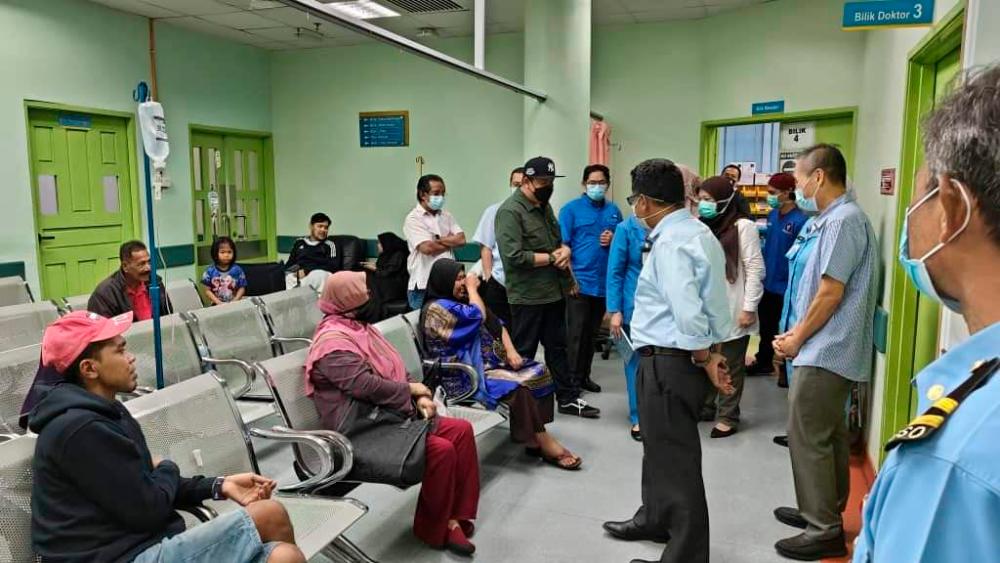PETALING JAYA: Malaysia is at the centre of a “non-communicable disease (NCD) crisis” and the only solution is to institute a social health insurance (SHI) scheme to fund treatment costs, said Galen Centre for Health and Social Policy CEO Azrul Mohd Khalib.
“With 70% of the population currently accessing public healthcare, strengthening it must be our priority. Malaysia is overdue to urgently put into place a government-initiated SHI framework that would pool funds and risks across the population, like the Employees Provident Fund and Social Security Organisation, to ensure those in need of medical treatment can access it.
“In this case, SHI could also help act as competition to private health insurance and moderately influence the rising medical treatment charges of private healthcare providers,” he said.
Azrul added that millions are living with at least two of several NCDs, such as diabetes, hypertension, and cancer.
“In terms of diabetes, Malaysia has the highest rate of the disease in the Western Pacific region and one of the highest in the world, costing the healthcare system around RM3.1 billion annually.
“It is expected to affect seven million Malaysian adults aged 18 and older by 2025, posing a major public health risk with a projected prevalence of 31.3%. Currently, 3.6 million adults in the country are living with diabetes, but around half are undiagnosed.”
Azrul also said treating diabetes takes up the bulk of healthcare expenditure related to NCDs.
“So the question is how we will pay for the treatment of these chronic diseases, which will last for years and cost billions of ringgit? I believe the only answer is to institute SHI as soon as possible.
“Consider also that 15% of the population will be 50 years and older by 2030 , about seven years away. A Statistics Department report in 2021 evaluated the country as being unprepared, neglected and not investing in critical infrastructure that will ensure aged care can be provided for the millions who already need such support and those of the future.
“This is a major and urgent area that needs attention as it will impose a hefty price tag on the country, which under the current system and without SHI, taxpayers will have to foot the bill,” he told theSun.
Azrul said the healthcare system faces an incredible challenge of how to prepare and respond to the ongoing and increasingly heavy challenges of a population becoming stricken with NCDs.
He said a proportion of the current population is aged and their numbers are growing larger as life expectancy increases.
The Covid-19 pandemic also increased the urgency to address an emerging public health problem – more people suffering from mental health issues and requiring help, especially young people.
He added that there is a need for better investment, coverage and protection when it comes to mental health, which has a gaping problem in terms of access to treatment.
“We must maintain preparedness, relevance, sustainability and resiliency, especially with the threat of future health emergencies such as another pandemic.”
However, the current financing system for government services, which is dependent on tax revenue, is increasingly untenable, and unsustainable, and cannot address all the needs, issues, and problems facing the public healthcare system. Thus, the urgency for the SHI to be instituted.
“Also, we have reached the limits of a tax-based system to fund our public healthcare. Alarmingly, our healthcare system is increasingly resembling the experience of the US, where access to timely and quality services depends on who can afford to pay. The disparity is real,” he said.
Azrul said Malaysia does not only need more healthcare financing but a way for it to be sustained, so the question of how to pay for it should be on the minds of policymakers whenever funding is demanded.
“Making compulsory contributions to the SHI scheme, since it will provide coverage for every Malaysian, is important. Each SHI scheme is unique to its country and must be needs-based. The ideal would be for a single-payer, multiple-provider system where patients can equally access public and private healthcare institutions. This would be the most efficient and cost-effective system, and the long-term goal,” he said.
However, Azrul said his suggestions will not replace the existing budget allocation for health. Instead, compulsory contributions to the SHI scheme would complement and make it possible for new treatments, drugs, and therapies to be introduced and made available for patients who need them without being dependent on the national budget.









